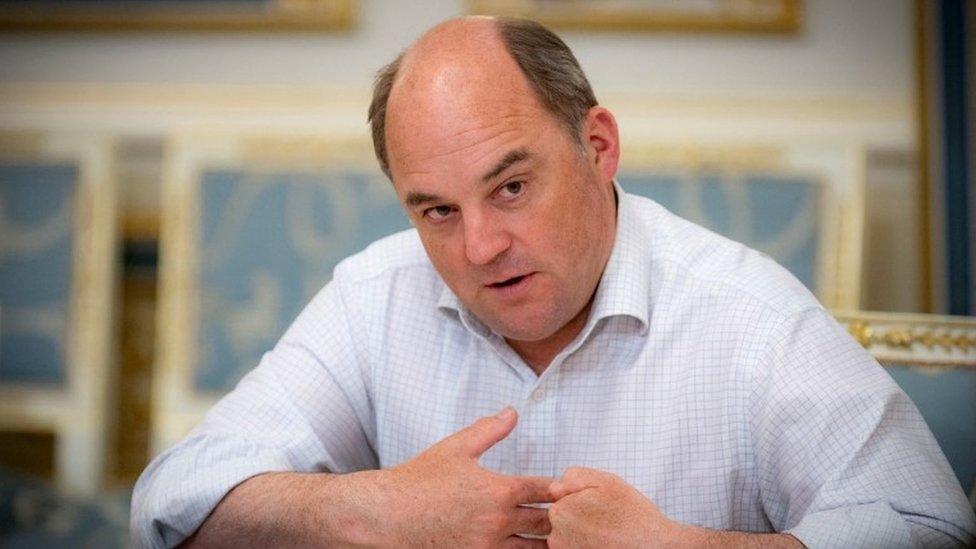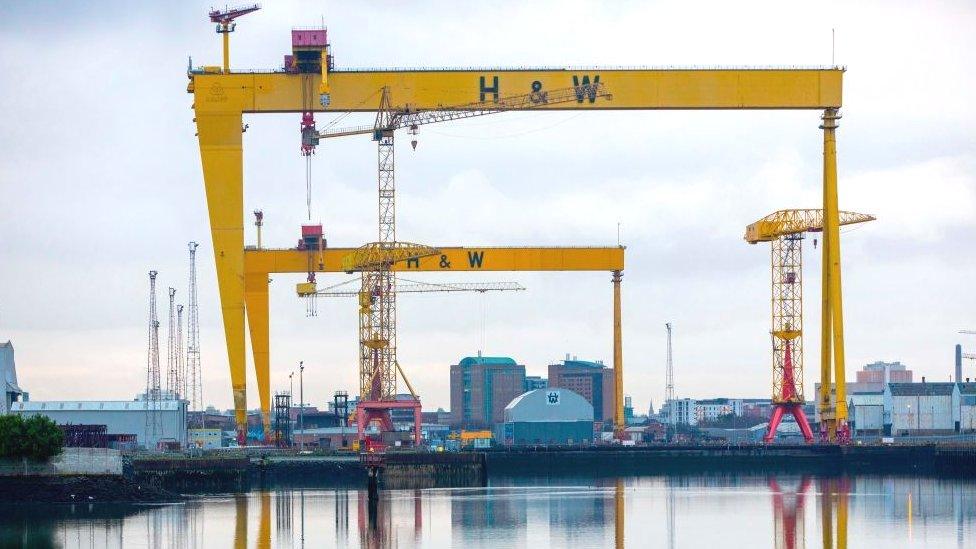Legacy bill: Ben Wallace says new law will end inquest merry-go-round
- Published

Ben Wallace said the bill currently going through Parliament was the fairest way to deal with the legacy of the past
The controversial Northern Ireland legacy bill will end the merry-go-round of legacy inquests, Defence Secretary Ben Wallace has said.
He said the legislation under consideration at Westminster was the fairest way to deal with the past.
Mr Wallace was speaking on a visit to Harland and Wolff in Belfast.
The bill would end all future civil actions related to the Troubles and there would be no further inquests beyond those already commenced.
The scheduled legislation has been opposed by all the main political parties in Northern Ireland, the Irish government and victims' groups.
It has also been criticised by Ian Jeffers, the victims' commissioner, who has called for the bill to be shelved.
'Status quo has not worked'
Mr Wallace said he understood the strength of feeling and the sense of loss many victims hold.
He added that he it was important the government stopped "what became a merry-go-round of legacy inquests, and constant reopening and re-trials that don't actually seem to serve the peace process well".
Sinn Féin MLA Gerry Kelly described the comments as 'insulting and disrespectful to victims of the conflict".
He added: "Access to the courts and to due process is a human right."
Mr Wallace said the current situation did not help either victims or people accused, and that the "status quo has not worked and has to be addressed".
He said opponents of the bill should give the legislation a try and see if it works.
The defence secretary also confirmed that the government had made a number of amendments to the original legislation.
Last week, on a visit to Northern Ireland, the Labour leader Sir Keir Starmer said his party would continue to oppose the plans and he would repeal the bill if he became prime minister.

The Troubles was a period of conflict which lasted for 30 years and cost the lives of more than 3,500 people
Under the bill, immunity from prosecution will be offered to those who co-operate with Troubles investigations run by a new information recovery body.
The Independent Commission for Reconciliation and Information Recovery (ICRIR) will be headed by a judicial figure appointed by the government.
The move on legacy has its origins in a 2019 manifesto commitment by the Conservatives who argued that military veterans should be given greater protection from Troubles-related investigations.
Mr Wallace, a keen supporter of the bill, served in Northern Ireland with the Army before entering politics.
He was visiting Harland and Wolff in Belfast where three new support vessels are to be built for the Royal Navy.
The order is worth £1.6bn and is expected to create 1,200 jobs at UK shipyards, 900 of which are believed to be in Belfast.
Mr Wallace described it as "a significant boost to the UK's historic shipbuilding industry across the Union".
Related topics
- Published3 January 2023

- Published9 December 2022

- Published16 November 2022
